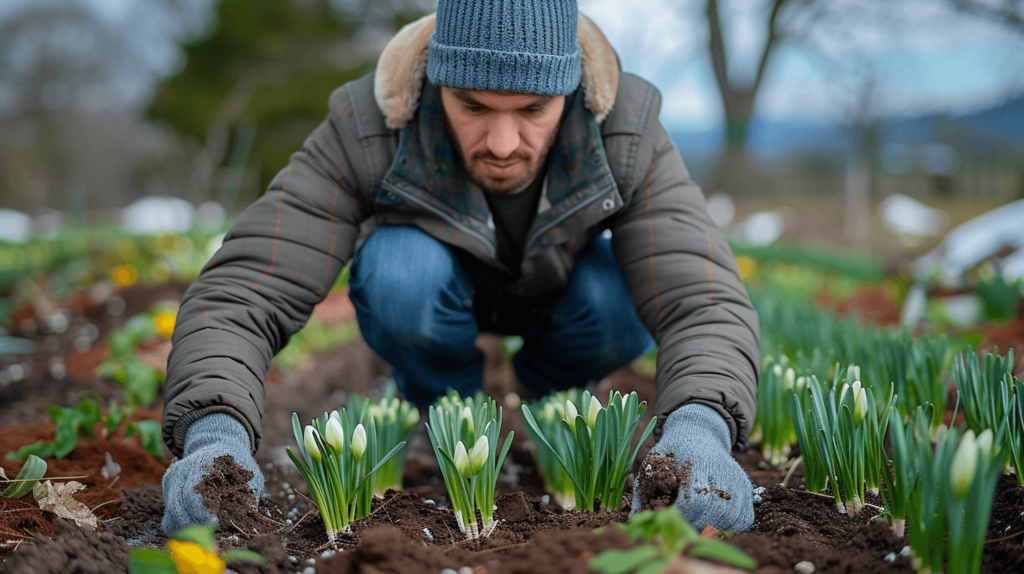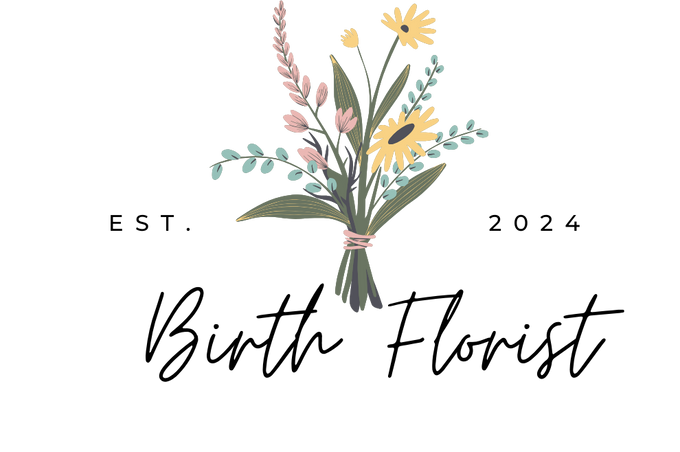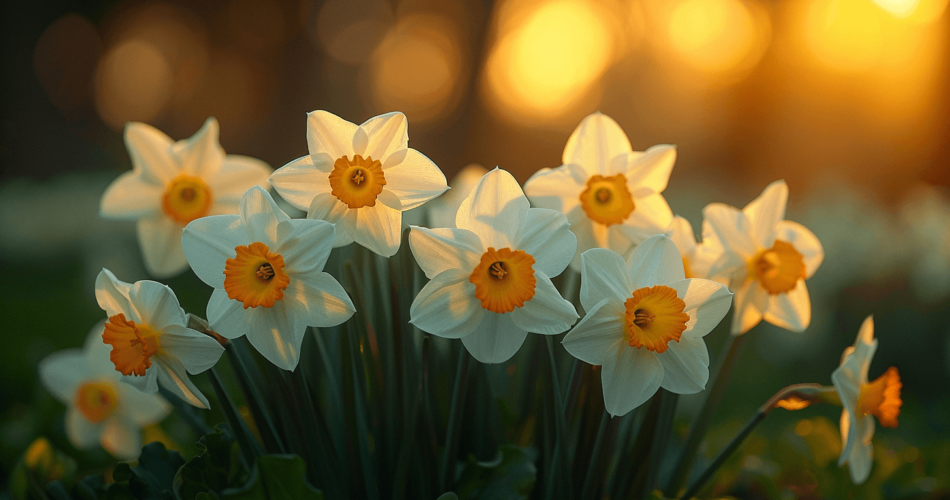Ever wondered about the daffodil flower’s history and meaning? These bright blooms signal spring’s arrival. They also carry deep cultural meanings and interesting facts that amaze us. From ancient Greek myths to being Wales’ national flower, daffodils have a rich story. But what’s the real meaning behind these golden flowers?

Key Takeaways
- Daffodils were first brought to Britain by the Romans. They believed the plant’s sap could heal.
- The name “daffodil” comes from Greek myth. It’s about Narcissus, a hunter who fell in love with himself.
- Daffodils are March’s birth flower. They symbolize new beginnings, friendship, and joy.
- In Wales, daffodils are a national symbol. People wear them on St. David’s Day.
- In the UK, daffodils are called “lent lilies.” They bloom from Ash Wednesday to Easter.
What is Daffodil Flower?
Daffodils, also known as Narcissus, are a favorite spring flower. They signal the start of warmer weather. These flowers belong to the Amaryllidaceae family, not Liliaceae as once thought. “Daffodil” and “narcissus” are often used to describe the same flower.
The daffodil’s unique feature is its trumpet-shaped corona. This sets it apart from other flowers. The corona is firm, unlike the soft petals. Daffodils come in many colors, including yellow, white, orange, and pink.
Daffodils thrive in zones 3-8 and start growing in February to April. They bloom for 3-6 weeks. These flowers are known for coming back year after year, making them a great choice for gardens.
| Daffodil Fact | Value |
|---|---|
| Optimal Bulb Size | Larger, 14/16cm bulbs produce more stems and flowers than smaller, 12/14cm bulbs |
| Bloom Duration | Daffodils usually bloom for 3-6 weeks |
| Perennial Nature | Daffodil bulbs will return to flower every spring, usually in increasing numbers |
| Flowering Season | Daffodils bloom from winter throughout spring, extending the flowering season |
| Visual Appeal | Daffodils have bold colors, making them eye-catching and heralding the arrival of spring |
Daffodils are loved for their bright colors and reliable return. They symbolize spring, rebirth, and resilience. This makes them a favorite in many cultures and celebrations.
Daffodil Flower Meaning and Symbolism
The daffodil flower holds deep symbolism across cultures. It’s often seen as a symbol of rebirth and new beginnings. This is because daffodils bloom early in spring, signaling the start of a new season.
Rebirth and New Beginnings
Daffodils grow through snow, showing human strength and resilience. Their bright colors bring hope and optimism. They promise better days are coming.
Creativity, Energy, and Resilience
The daffodil flower also stands for creativity, energy, and resilience. Its yellow color sparks creativity and boosts energy. It thrives in tough conditions, showing its resilience.
Cultural Meanings
Daffodils mean different things in various cultures. In China, they symbolize good luck and wealth. In Japan, they represent joy and laughter. In France, they symbolize hope. In the Middle East, they were thought to be aphrodisiacs.
Despite cultural differences, the daffodil flower is a powerful symbol. It represents life’s cycles, the human spirit’s triumph, and our wish for growth and a better future.
Daffodil Flower History and Insights
The daffodil flower has a long and interesting history. It comes from southern and western Europe, and northern Africa. These bright flowers have won the hearts of many across the globe.
In the UK, daffodils are called the “Lent lily” because they bloom from Ash Wednesday to Easter. They are not lilies but belong to the Narcissus genus. There are about 50 to 80 species of Narcissus, dating back 18 to 30 million years.
Daffodils can bloom for 50 years in the right conditions. The best time to plant their bulbs is from late September to early November. By 2008, over 28,000 daffodil varieties had been named, and the number keeps growing.
| Daffodil Flower Facts | Statistics |
|---|---|
| Number of Narcissus species | 50 to 80 |
| Narcissus genus origin | Late Oligocene to early Miocene (18-30 million years ago) |
| Registered daffodil cultivars | Over 32,000 |
| Daffodil varieties named as of 2008 | More than 28,000 |
| Lifespan of a successful daffodil field | Up to 50 years |
The daffodil flower has a rich history from Europe and Africa to worldwide cultivation. With thousands of varieties, these flowers continue to delight and inspire people everywhere.
Narcissus vs. Daffodil
Many people think “narcissus” and “daffodil” are different, but they’re the same. The scientific name for the daffodil is narcissus. This flower is loved for its bright yellow trumpet-shaped blooms that bloom in spring.
The name “narcissus” comes from a Greek myth. It’s about a hunter named Narcissus who fell in love with his own reflection and drowned. The flowers grew where he died. The name might also mean “to be numb” or “I grow numb,” hinting at the plant’s toxicity.
Narcissus Name Meaning
The name narcissus covers over 50 species, including daffodils and jonquils. Daffodils have wide leaves and big trumpet flowers. Jonquils have thin leaves and bloom in clusters of small flowers.
| Feature | Daffodil | Jonquil |
|---|---|---|
| Leaves | Wide, flat | Slender, tube-like |
| Flower Shape | Large, trumpet-shaped | Smaller, clustered |
| Bloom Habit | Single flower per stem | Multiple flowers per stem |
| Common Colors | Yellow, white, peach, pink | Predominantly yellow |
The Narcissus genus has over 13,000 hybrids and 200 species. This means gardeners have many daffodil and jonquil varieties to choose from each spring. Whether you like the classic yellow daffodil or the delicate jonquil, these flowers symbolize new beginnings and the joy of the season.

Jonquils vs. Daffodil
Jonquils and daffodils are often confused because they both belong to the Narcissus family, but there are some key differences:
- Daffodil is the common name for all flowers in the Narcissus genus, which includes many different types of flowers.
- Jonquil refers to a specific type of daffodil, typically Narcissus jonquilla.
Here’s how they differ:
- Jonquils:
- Have multiple smaller, fragrant flowers per stem.
- Usually have darker green, rounded leaves.
- Often bloom in clusters.
- Prefer warmer climates.
- Daffodils:
- Tend to have larger, single flowers on each stem.
- Have flatter, strap-like leaves.
- Are more cold-hardy and can grow in a variety of climates.
Are Daffodils Poisonous?
Daffodils are not just pretty; they are toxic plants that can harm humans and animals. All parts of the daffodil, including flowers, leaves, stems, and bulbs, have a chemical called lycorine. This chemical can cause severe stomach problems if eaten.
Eating just 15 grams of daffodil bulb can be deadly for dogs. Even touching or smelling the flowers can cause skin irritation, mouth pain, and throat burning. This is because of tiny, sharp crystals of calcium oxalate.
Daffodil poisoning can cause a range of symptoms. These can be mild, like vomiting and diarrhea, or severe, like collapse and paralysis. In extreme cases, it can even lead to death. The bulbs are especially dangerous because they have the most toxins.
Despite their dangers, daffodils were once used in medicine to induce vomiting and numbness. They also contain a chemical called galantamine. This chemical can slow down Alzheimer’s disease.
“Twenty minutes after a 4-year-old girl ate two daffodil leaves, she began vomiting.”
It’s very important to keep daffodils away from children and pets. If someone eats or touches daffodils, they should get medical help right away. While deaths from daffodil poisoning are rare, the risks are real. So, we must be careful around these beautiful but dangerous flowers.
| Toxicity Level | Symptoms | Treatments |
|---|---|---|
| Mild | Nausea, vomiting, abdominal pain, diarrhea | Supportive care, hydration |
| Severe | Low blood pressure, drowsiness, liver damage | Hospitalization, supportive care, possible antidote |
| Fatal | Collapse, paralysis, death | Urgent medical attention, possible antidote |
Daffodils are loved for their beauty, but they are dangerous. Knowing their toxicity helps us enjoy their beauty safely. We can do this by being careful and keeping them away from those who might get hurt.
Do Daffodils Smell?
Most daffodils have a lovely scent, but some people might find it too strong. Jonquil daffodils, in particular, have a very noticeable smell. Whether you like the smell of daffodils depends on your taste and how sensitive you are.
Caring for Cut Daffodils

Cut daffodils can harm other flowers in a vase. Their sap stops other blooms from getting water, making them wilt quickly. To avoid this, soak daffodil stems in clean water for at least six hours before adding them to other flowers.
Don’t trim daffodil stems often. It lets out more sap and means you’ll need to soak them again. Taking good care of daffodils helps them stay fresh and fragrant in your arrangements.
“The daffodils with their golden cups have come again to bring us cheer.” – Sara Teasdale
Daffodil Flower Meanings by Color
Daffodils do not have different meanings based on their color. But, yellow and white daffodils share meanings with other flowers. Yellow daffodils symbolize joy and happiness. White daffodils stand for purity and innocence.
Daffodils are mostly yellow or white. But, they can also have pink, orange, or yellow centers. These colors add variety to their meanings.
- Yellow daffodils represent happiness, optimism, and prosperity.
- White daffodils symbolize purity, innocence, and new beginnings.
- Orange daffodils represent bravery, zeal, health, and friendship.
- Pink daffodils are associated with platonic love.
- Purple daffodils can be linked to selfishness or self-obsession.
Daffodils are symbols of revival, hope, joy, resilience, good luck, prosperity, memories, and forgiveness. Their bright colors welcome spring and new starts.
“Daffodils are one of the first flowers to emerge after winter, usually appearing in March or early April. Their cheerful blooms are often associated with the arrival of spring and the promise of new beginnings.”
When to Give Daffodils as Gifts
Daffodils are great for many occasions. They are the birth flower for March, making them perfect for March birthdays. They also symbolize a 10th wedding anniversary, often paired with tin.
Daffodils are a thoughtful gift for any birthday or to wish someone well. They can also brighten someone’s day with their vibrant colors. In Australia, daffodils are in season from late August to October, so they’re a timely gift.

“Daffodils are the perfect gift to convey happiness, new beginnings, and a burst of energy to the recipient.”
Daffodils come in many sizes, shapes, and colors. This makes them a versatile and memorable gift. Whether it’s classic yellow, delicate white, or rare purple, they’re sure to make someone smile.
- March birthdays: Daffodils are the birth flower for March, making them a thoughtful gift.
- 10th wedding anniversary: Daffodils, along with tin, are a traditional 10th anniversary gift.
- Brightening someone’s day: Daffodils are a cheerful way to lift the spirits of a friend or loved one.
- Congratulatory gesture: Daffodils make a wonderful gift to celebrate a special accomplishment.
- Get well wishes: Daffodils can be sent to someone recovering from an illness or injury.
Daffodils are a gift that brings joy and new beginnings. Their vibrant colors and resilient nature make them a delightful and inspiring choice for any occasion.
Conclusion
The daffodil flower is more than just a pretty face. It has a rich history and deep cultural meaning. It also has unique properties and needs special care.
If you love gardening or want to add daffodils to your designs, learning about them is key. There are over 50 types of daffodils. This means there’s a perfect one for every garden and event.
Exploring the daffodil flower is a journey of discovery. It stands for renewal, new starts, and hope. By embracing the daffodil, we celebrate nature’s beauty and strength.
FAQ
What is a daffodil flower?
Daffodils are a type of flower from the Narcissus genus. They are known for their bright colors. They are often the first flowers to bloom in spring.
What is the meaning and symbolism of daffodil flowers?
Daffodils symbolize rebirth and new beginnings. They also stand for creativity, energy, and resilience. Their meaning changes across cultures, representing good fortune and joy.
What is the history and interesting facts about daffodil flowers?
The Romans brought daffodils to Britain. Now, they are grown all over the world. They are called “Lent lilies” and can live up to 50 years.
What is the difference between narcissus and daffodil flowers?
Narcissus and daffodils are the same. “Daffodil” is the common name for all Narcissus flowers. The name “narcissus” comes from Greek mythology.
Are daffodil flowers poisonous?
Yes, daffodils are toxic to humans and animals. They contain a chemical called lycorine and tiny, sharp crystals.
Do daffodil flowers have a strong scent?
Most daffodils have a fragrance. Some people find it pleasant, while others don’t notice it. Jonquil flowers, however, have a strong and unpleasant smell.
What do different colored daffodils mean?
Daffodil colors don’t have deep meanings. Yellow daffodils often symbolize joy. White daffodils may represent purity.
When is the best time to give daffodils as gifts?
Daffodils are perfect for March birthdays. They are also a traditional gift for a 10th wedding anniversary, along with tin.
Source Links
- Daffodils: The Language of Flowers – https://thedaffodilsociety.com/miscellany/daffodilsthe-language-of-flowers/
- Narcissus Flower Meaning Symbolism & Facts – https://www.interflora.co.uk/page/flower-types/narcissi
- All About Daffodils – https://www.longfield-gardens.com/article/all-about-daffodils/
- Narcissus and Daffodils – The Southern Bulb Co. – https://www.southernbulbs.com/narcissus-and-daffodils/
- Narcissus (plant) – https://en.wikipedia.org/wiki/Narcissus_(plant)
- The Daffodil: Meanings, Images & Insights – https://www.floraly.com.au/blogs/news/daffodil-flower-meanings
- March Birth Flowers & Meanings: Daffodils & Jonquils – https://www.floraly.com.au/blogs/news/march-birth-flowers-and-meanings-daffodils-jonquils
- Daffodils | Flower Meanings & Symbolism – https://lovflowers.co.uk/blogs/news/daffodils?srsltid=AfmBOoqDPW8zS5vpb_Uhuc0Lw7pc1qTd9l0bWQgeED1NZVVmvo4gItey
- Daffodil Insights — In Defense of Plants – https://www.indefenseofplants.com/blog/2018/4/16/daffodil-insights
- March Birth Flower: Daffodils! – https://www.almanac.com/content/march-birth-flower
- Daffodils – Flowers – Featured Content – Lovingly – https://www.lovingly.com/flower-meanings/daffodil
- What’s the difference between Daffodils, Narcissus and Jonquils? – https://www.gardenexpress.com.au/whats-the-difference-between-daffodils-narcissus-and-jonquils/
- What’s in a Plant Name? Narcissus, Daffodils, and Jonquils – Plant Talk – https://www.nybg.org/blogs/plant-talk/2017/04/around-the-garden/whats-in-a-plant-name-narcissus-daffodils-and-jonquils/
- What Is The Difference Between Daffodil, Jonquil, And Narcissus – https://www.gardeningknowhow.com/ornamental/bulbs/daffodil/daffodil-jonquil-and-narcissus.htm
- Daffodils - Beautiful but Potentially Toxic – https://www.poison.org/articles/daffodils
- Are daffodils poisonous? – Plantura – https://plantura.garden/uk/flowers-perennials/daffodils/are-daffodils-poisonous
- Are Daffodils Poisonous? – Yes, here’s the lowdown – Stone Age Man – https://stoneageman.com/are-daffodils-poisonous-yes-here-is-the-lowdown/
- Do Daffodils have a fragrance ? – https://www.pairfum.com/do-daffodils-have-a-fragrance/
- 3 Greatest Smelling Houseplants to Perfume Your Home – https://soltech.com/blogs/blog/best-smelling-plants-to-perfume-your-home?srsltid=AfmBOopZX-I_TMm23-Bwux9ionT-ZMSyUdzKDrUCFJ_R0g4L7U-f5beO
- Most Fragrant Daffodil Collection – https://www.brecks.com/products/most-fragrant-daffodil-collection-1?srsltid=AfmBOorUIdufYFfkcDL-xysAKWyiT9ktb_wzsSE8qYCDNjnVdJYDXj3Y
- Daffodils Flower: Origin, Meaning, and Symbolism – https://www.snapblooms.com/blog/daffodils-flower-meaning/
- Daffodils | Flower Meanings & Symbolism – https://lovflowers.co.uk/blogs/news/daffodils?srsltid=AfmBOopq610QnER5mqSICNqEkCcG8hFj0D7Xm2Dbd8m4q5ncpTWcai6T
- March Birth Flowers – Daffodil – Flower Patch – https://www.flowerpatch.com/march-birth-flowers-daffodil/
- The Daffodil: A Sign of Hope, New Beginnings, Spring Hiking and More – TailsOnDMVTrails – https://tailsondmvtrails.com/the-daffodil-a-sign-of-hope-new-beginnings-spring-hiking-and-more/
- All About Daffodils – Little Bites Of Joy – https://littlebitesofjoy.com/all-about-daffodils/
- Daffodils – Facts, Info, and Symbols | – https://www.tnnursery.net/blogs/tn-nursery-blog/daffodils-facts-info-and-symbols
- Dazzled by Daffodils: A Comprehensive Guide to Growing and Caring for Daffodils – https://www.arboristnow.com/news/dazzled-by-daffodils
- What I Love About Floral Design from the Garden in Autumn – https://www.vanhacres.com/2023/02/17/growing-daffodils/

